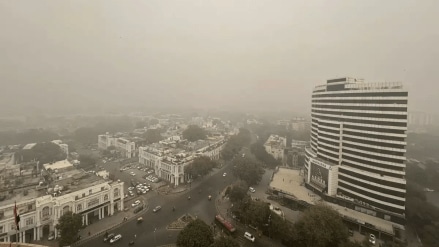Delhi’s environmental bodies have ramped up their efforts to combat hazardous air quality with stringent measures under the Graded Response Action Plan (GRAP). A total of 260 sites were flagged for dust violations, 204 projects faced Environmental Clearance action, and 35 received closure orders, officials reported on Tuesday. The action is part of the city’s ongoing battle against severe air pollution levels, which reached alarming heights in recent weeks.
As part of the enforcement, authorities also took action against 775 illegal dumping sites and sealed 259 diesel generators that violated environmental regulations. Additionally, over 24,000 complaints were addressed during the peak period of action.
Construction Sector Under Scrutiny
The construction and demolition (C&D) sector faced heightened scrutiny as authorities inspected 6,741 sites (greater than 500 sqm) for compliance with dust mitigation norms. Of these, 260 were found non-compliant and flagged for violations. Environmental clearance action was taken on 204 projects, and 35 were shut down to prevent further pollution.
In the illegal dumping sector, 974 inspections were conducted, leading to 775 actions against offenders. Furthermore, 31 challans were issued for violations related to municipal solid waste burning, and 246 complaints regarding open burning were addressed.
Air Quality Reaches Alarming Levels
Delhi’s air quality reached a critical threshold on November 17, with the Air Quality Index (AQI) spiking to 450, entering the severe-plus category for the first time in the year. The situation worsened on November 18, when AQI levels hit a hazardous 494, prompting the Commission for Air Quality Management (CAQM) to impose Stage IV restrictions under the GRAP—the strictest level of action. This marked Delhi’s second-worst air quality in six years.
Mitigation Measures in Full Swing
To tackle the pollution crisis, Delhi’s authorities implemented several dust suppression initiatives. Between October 16 and December 7, the city deployed 18,217 anti-smog guns, 13,163 water sprinklers, and 4,416 mechanical road sweeping machines. A total of 1,35,350 km of roads were swept to reduce particulate matter, significantly improving dust control.
Focus on Industrial Compliance
In addition to construction and road dust management, the industrial sector was also closely monitored. A total of 88 industrial units were inspected under Stage IV GRAP guidelines, and compliance checks on Diesel Generators (DG) saw 1,748 DG sets inspected, with 259 sealed for non-compliance.
Community Support and Complaints Resolution
Delhi authorities have also ensured that community support continues during the cold season. As part of their outreach efforts, 44 heaters were distributed to economically weaker sections. The grievance redressal mechanism remained active, with 24,367 complaints registered through various platforms, including the 311 App and Green Delhi App. Of these, 5,839 complaints were successfully resolved.
The city’s concerted efforts to combat pollution demonstrate a proactive approach to improving Delhi’s air quality and protecting public health. However, authorities continue to monitor the situation closely as air quality remains a pressing concern.
